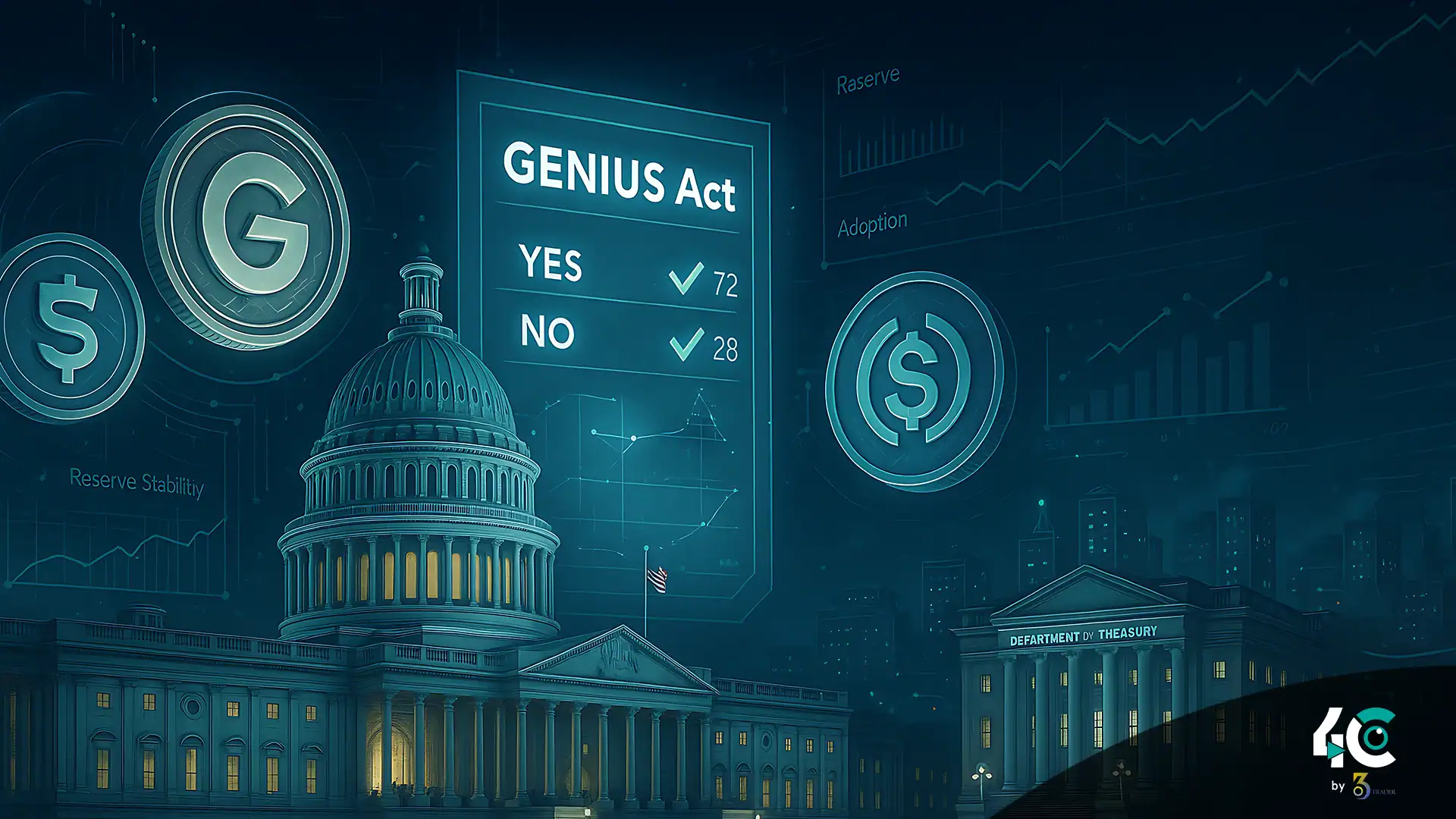An Act of GENIUS Clears the Senate, Pushing on Stablecoin Regulation
The U.S. Senate has voted 68 to 30 to move forward with the GENIUS Act—the U.S. National Innovation Act—marking a critical step toward regulating stablecoins. The legislation now heads for full debate and a potential final vote in the coming days.
If passed, this will be the first federal law aimed at overseeing stablecoins, a type of digital asset that maintains a 1:1 peg with fiat currencies like the U.S. dollar.
A Bipartisan Step Toward Crypto Regulation
Senate Majority Leader John Thune framed the GENIUS Act as a move to integrate cryptocurrency into the traditional financial system. “I think this would help us become the global hub of digital assets,” stated one GOP senator.
Under the GENIUS Act, stablecoin issuers with over $50 billion in market capitalization would be required to undergo annual audits and hold 100% dollar reserves or equivalent highly liquid assets. The bill also includes provisions to scrutinize foreign issuers, amid growing concerns over international market manipulation.
Division Over Trump’s Crypto Ties and Policy Loopholes
Opposition came from several Democrats, including Elizabeth Warren, Chuck Schumer, and Amy Klobuchar. They warned that the bill lacks sufficient consumer protections and includes risky regulatory loopholes.
Warren also pointed to Donald Trump’s alleged connections to crypto via his family-linked firm, World Liberty Financial, which has launched its own stablecoin and memecoin. “This bill invites corruption instead of fighting it,” Warren said, adding that it may erode consumer protections.
What’s Next: House Alignment and Crypto Frameworks
The GENIUS Act now proceeds to a full Senate debate. If passed, it will be reconciled with the House version—the STABLE Act, which focuses on Stablecoin Transparency and Accountability for a Better Ledger Economy and is currently under committee review.
The House and Senate remain divided on how to treat foreign stablecoin issuers like Tether. Meanwhile, the House is also advancing the CLARITY Act, a broader crypto regulation bill that could eventually be merged with the GENIUS Act to create a unified federal crypto oversight framework.
Political Tensions Could Shape the Final Outcome
While the Senate’s cloture vote shows bipartisan momentum, political friction remains. Ongoing debate over Trump’s crypto ties and potential loopholes could lead to amendments or even stall progress.
Nonetheless, the GENIUS Act signals a pivotal moment in America’s digital asset policy. It could lay the groundwork for stablecoin oversight not just nationally, but globally—promoting responsible innovation in the fast-evolving crypto space.



























